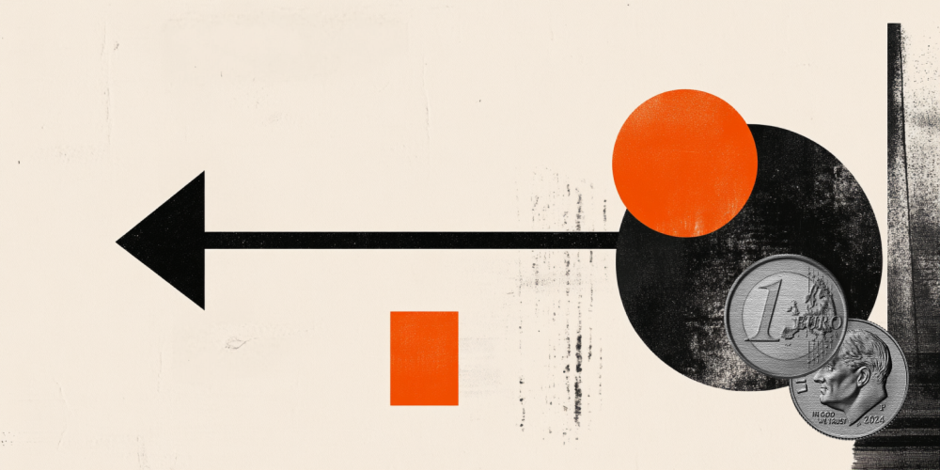EUR/USD trades below 1.0500 after pausing winning streak
- EUR/USD remains subdued despite a positive market mood.
- A weaker US retail sales report has fueled speculation that the Fed could cut interest rates later this year.
- The EUR/USD pair could further rise if a Ukraine ceasefire is reached and gas supplies resume.

EUR/USD halts its four-day winning streak, hovering around 1.0490 during Asian trading hours. Liquidity during the North American session may remain thin as all major US financial markets will be closed on Monday for the federal holiday, Presidents' Day.
The EUR/USD pair gained ground recently due to delays in implementing US President Donald Trump’s reciprocal tariffs, which are taking longer than analysts had anticipated. Additionally, disappointing US economic data has pressured the US Dollar (USD), providing further support for the EUR/USD pair. A weaker-than-expected US retail sales report has reignited speculation that the Federal Reserve (Fed) may cut interest rates later this year, despite ongoing inflation concerns.
Data from the US Census Bureau on Friday showed that US Retail Sales fell by 0.9% in January, following a revised 0.7% increase in December (previously reported as 0.4%). This decline was sharper than the market’s expectation of a 0.1% drop.
Meanwhile, a JP Morgan note suggests that the EUR/USD pair could gain as much as 5% if a ceasefire in Ukraine is agreed upon and gas supplies resume. Reports indicate that Trump and Russian President Vladimir Putin have agreed to initiate negotiations to end the conflict. Sources cited by the BBC suggest that Trump administration officials are set to meet with their Russian counterparts in Saudi Arabia on Tuesday to discuss a potential peace agreement.
Euro FAQs
The Euro is the currency for the 19 European Union countries that belong to the Eurozone. It is the second most heavily traded currency in the world behind the US Dollar. In 2022, it accounted for 31% of all foreign exchange transactions, with an average daily turnover of over $2.2 trillion a day. EUR/USD is the most heavily traded currency pair in the world, accounting for an estimated 30% off all transactions, followed by EUR/JPY (4%), EUR/GBP (3%) and EUR/AUD (2%).
The European Central Bank (ECB) in Frankfurt, Germany, is the reserve bank for the Eurozone. The ECB sets interest rates and manages monetary policy. The ECB’s primary mandate is to maintain price stability, which means either controlling inflation or stimulating growth. Its primary tool is the raising or lowering of interest rates. Relatively high interest rates – or the expectation of higher rates – will usually benefit the Euro and vice versa. The ECB Governing Council makes monetary policy decisions at meetings held eight times a year. Decisions are made by heads of the Eurozone national banks and six permanent members, including the President of the ECB, Christine Lagarde.
Eurozone inflation data, measured by the Harmonized Index of Consumer Prices (HICP), is an important econometric for the Euro. If inflation rises more than expected, especially if above the ECB’s 2% target, it obliges the ECB to raise interest rates to bring it back under control. Relatively high interest rates compared to its counterparts will usually benefit the Euro, as it makes the region more attractive as a place for global investors to park their money.
Data releases gauge the health of the economy and can impact on the Euro. Indicators such as GDP, Manufacturing and Services PMIs, employment, and consumer sentiment surveys can all influence the direction of the single currency. A strong economy is good for the Euro. Not only does it attract more foreign investment but it may encourage the ECB to put up interest rates, which will directly strengthen the Euro. Otherwise, if economic data is weak, the Euro is likely to fall. Economic data for the four largest economies in the euro area (Germany, France, Italy and Spain) are especially significant, as they account for 75% of the Eurozone’s economy.
Another significant data release for the Euro is the Trade Balance. This indicator measures the difference between what a country earns from its exports and what it spends on imports over a given period. If a country produces highly sought after exports then its currency will gain in value purely from the extra demand created from foreign buyers seeking to purchase these goods. Therefore, a positive net Trade Balance strengthens a currency and vice versa for a negative balance.
Author

Akhtar Faruqui
FXStreet
Akhtar Faruqui is a Forex Analyst based in New Delhi, India. With a keen eye for market trends and a passion for dissecting complex financial dynamics, he is dedicated to delivering accurate and insightful Forex news and analysis.

















